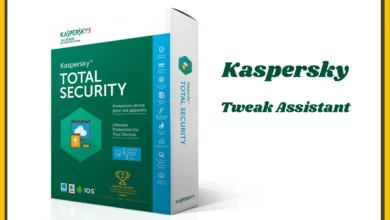Introduction:
In the ever-evolving online world, ensuring the security of your website is crucial. As cyber threats become more complex, website owners must adopt proactive measures to protect their digital assets. One such crucial measure is website penetration testing, an ethical and controlled approach to identifying vulnerabilities before malicious actors can exploit them.
That is why we put before you a group of important and useful information, as well as an educational course available for free download (Website Hacking Penetration Testing 2022-1)
Also read: How to Find the Best Free Courses Online in 2024 (moumentec.com)
Getting Started with Website Hacking Penetration Testing:
Before delving into the intricacies of penetration testing, it’s vital to understand its significance. Penetration testing, commonly known as ethical hacking, involves simulating cyber-attacks on a website to uncover potential weaknesses. However, conducting such tests requires adherence to legal and ethical standards.
Different types of penetration testing cater to specific aspects of a website’s security. External testing assesses vulnerabilities from an outsider’s perspective, while internal testing mimics an insider threat. Blind testing, double-blind testing, and targeted testing offer varied approaches based on the depth of information available to the tester.
Essential Tools for Website Hacking Penetration Testing:
Equipping yourself with the right tools is key to effective penetration testing. Nmap, a powerful network scanning tool, aids in discovering hosts and services on a computer network. Metasploit, an exploitation framework, allows testers to simulate cyber-attacks and identify potential vulnerabilities. Wireshark, a packet analysis tool, provides insights into network protocols, while Burp Suite is essential for web application testing.
The Step-by-Step Process of Penetration Testing:
Penetration testing involves a systematic approach to identify, exploit, and report vulnerabilities. The process typically includes reconnaissance, scanning, exploitation, post-exploitation, and reporting. During reconnaissance, testers gather information about the target, followed by scanning to identify potential vulnerabilities. Exploitation involves breaching security, post-exploitation assesses the impact, and finally, a detailed report is prepared.
Best Practices in Website Hacking Penetration Testing:
Staying abreast of the latest security trends is crucial for penetration testers. Legal and ethical considerations should be at the forefront of any testing endeavor, ensuring that the testing is authorized. Collaboration with other security professionals enhances the testing process, and regular testing and updates to security measures are imperative for robust protection.
Challenges and Solutions in Website Hacking Penetration Testing:

The ever-evolving threat landscape poses challenges to penetration testers. Adapting to new attack vectors and overcoming common challenges like false positives requires a proactive approach. Effectively mitigating risks involves a combination of technical expertise, continuous learning, and collaboration within the cybersecurity community.
Direct link to download the training course Website Hacking Penetration Testing 2022-1
Conclusion:
In conclusion, mastering Website Hacking Penetration Testing in 2023 is not just a necessity; it’s a responsibility. Regular and thorough testing, combined with a proactive approach to security, is the key to safeguarding your digital assets. Ethical hacking plays a pivotal role in staying one step ahead of potential threats, ensuring a resilient and secure online presence.
Frequently Asked Questions and Their Answers:
Q1: Is penetration testing legal?
A: Yes, as long as it is conducted with proper authorization.
Q2: How often should a website undergo penetration testing?
A: Regular testing is recommended, ideally after significant updates or changes.
Q3: Can penetration testing completely secure a website?
A: While it enhances security, it’s essential to combine it with other measures for comprehensive protection.
Q4: What qualifications do ethical hackers need?
A: Certifications like Certified Ethical Hacker (CEH) are widely recognized.
Q5: Are there free penetration testing tools available?
A: Yes, many open-source tools like OWASP ZAP and Nikto can be used without cost.
Dive into the world of ethical hacking, and fortify your website against the ever-evolving threats of 2023. Secure, protect, and stay one step ahead with Website Hacking Penetration Testing.





